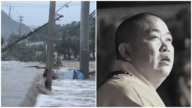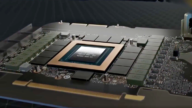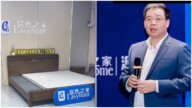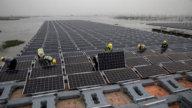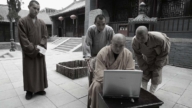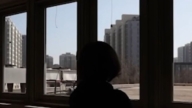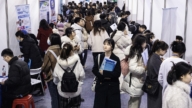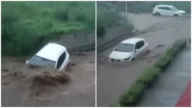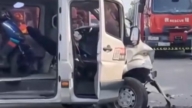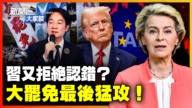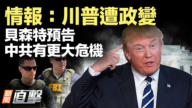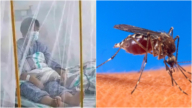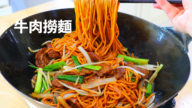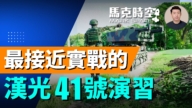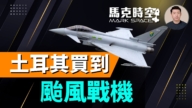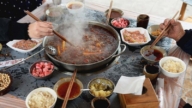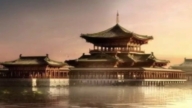【新唐人2012年2月27日讯】日前,中共政法委员会机关报《法制日报》披露,由于军队驻厂代表接受生产企业的贿赂,导致军用装备质量存在隐患。舆论认为这则消息与早前1月份,中共军方总后勤部政委上将刘源在军界反腐运动有关。有评论指出,所谓的“反腐败”,只是中共高层之间进行权力斗争的手段而已。
《法制日报》文章说,长期以来,部队驻厂军事代表的工作和生活保障责任不够明确,有军事代表接受装备科研生产企业提供的住房、车辆。
所谓的军事代表,就是中共军队为执行武器装备建设计划,而向研发制造的军工单位派出的代表,主要负责是对军工产品进行检验和验收,参与军工产品研制的质量保证工作,对军工产品提出订价意见,并负责军队与军工厂的联系等。
时事评论家伍凡:“这个军代表这个角色对军工厂非常重要。如果跟这个军代表关系处理不好,那麽他质量不能保证也好,甚至订单也没有了。所以工厂里边会下很大的功夫笼络、贿赂、收买,争取一切手段把军代表工作做好。在这中间他们长期是这么做的。”
日前《自由亚洲电台》报导,7名中共军官,上周在北京解放军总部三总部附近举牌抗议,要求军方反腐败。他们已经上访多年,但问题一直得不到解决。其中,海军上校谭林书,抗议总装备部副部长王峰保护军队内部腐败。
而在今年稍早之前,共军总后勤部副部长、中将谷俊山已经因为贪腐问题被撤职查办。
伍凡认为,军代表受贿被曝光,是中共军方总后勤部政委上将刘源,在军界通过“反腐”扳倒谷俊山的延伸。
伍凡:“在共产党这种专制下,一种封闭的关系中闲,军队跟军工厂的关系是非常封闭的,外头的人肯定是查不到的,只有军队自己去查才能出来。所以说这件事情跟刘源在军队里面打贪污可能有关。因为后勤部门,装备部门贪污的非常厉害。”
另有分析指出,在军队中通过“反腐”的手段达到人事调动,平衡权利也不无可能。中共以往军事大调动都是面临内外交困,是党魁们以巩固自己手中权力的举措。最近的2007年十七大前,中共七大军区中有五个军区的高层换人,五大军区司令员换任。
北京作家鲁直人认为,所谓的“反腐败”早就成了中共高层之间进行权力之争的手段。真的要反腐败,他们都不干净。
新唐人记者易如、李明飞、孙宁采访报导。
**************
The Uncovered Graft of CCP Army Reps. Sparks Fears of Shoddy Armaments Production
The Legal Daily, official media of the CCP’s Political and
Legislative Affairs Committee, has recently revealed that
the Chinese Communist Party ‘s army representatives
who are stationed in military production factories have received bribes.
This has led to concerns over hidden danger in the
quality of armaments produced, the report says.
The news was reportedly associated to an anti-corruption
dive n the military that was led by CCP General Liu Yuan this January.
Commentators say that the alleged anti-corruption drive is
nothing more than a trick for the CCP’s central power struggle.
The Legal Daily recently reported on the army
representatives stationed in military production factories.
The responsibilities of these representatives regarding
personal safety and work quality are reportedly not clearly defined.
And these military producers are said to provide
the army representatives with housing and vehicles.
The term “military representatives” refers to the persons
dispatched by the army to the military units.
The army reps’ job duty is mainly inspecting and accepting
military products and securing the quality of applied research.
Price reviewing and coordination between the army and
the factories are also part of their duties.
Wu Fan (Commentator) says, “The army rep. plays a key role.
If the factories don’t establish a good connection with him,
their product quality won’t be accepted,
which may even mean losing orders.
So the factory would devote much effort, using every means,
to infiltrate, to bribe and to buy off these military representatives. They have done so for a long time."
RFA reported that last week in Beijing, seven army officers
held placards calling for an anti-corruption initiative inside the army.
They stood nearby the 3rd General Department of the CCP’s
People’s Liberation Army (PLA) Headquarters.
The petitioning has lasted for years whilst nothing
has been resolved so far.
Among the seven officers, Navy Captain Tan Linshu has,
accused Wang Feng of protecting inner-army corruption from investigation.
Wang is vice-director of the General Armaments Department.
Earlier this year, Lt. General Gu Junshan, vice director of
the PLA General Logistics Dept., was sacked for corruption.
Wu Fan observes that the exposure of the army reps’ bribery
is an extension of Liu Yuan’s anti-corruption drive in the military.
General Liu, political commissar of the General Logistics Dept.,
was deemed to have axed Gu Junshan.
Wu Fan says: “Under the CCP’s dictatorship, the troops and
military productions enterprises have formed a closed system.
Outsiders definitely have no access to it.
Only the military itself can conduct an investigation into this issue.
So this matter is very probably related to Liu Yuan’s
anti-corruption drive.
Both the logistics and armaments departments are
known to be corrupt on a large scale."
Analysts have said that, the CCP’s military’s anti-corruption drive
might aim at rearranging personnel and running a check on the power structure.
The CCP’s previous major military reshuffles were all
undertaken when facing difficulties at home and abroad.
It is viewed as the regime’s initiative to consolidate
the power in it’s hands. The last shake up was done before the CCP’s 17th congress in 2007.
Among the CCP’s seven major military regions, the positions of
commanders of five major military regions were shifted.
Beijing-based writer Lu Zhiren views the CCP’s
anti-corruption drive as a technique for a power grab amongst its top leadership figures.
If implementing a truly thorough fight against corruption,
they all should be targets, says Lu.
NTD reporters Yi Ru, Li Mingfei and Sun Ning


